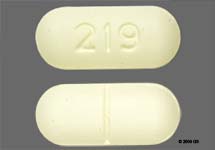Choline Magnesium Trisalicylate Interactions
There are 308 drugs known to interact with Choline Magnesium Trisalicylate (choline salicylate/magnesium salicylate), along with 9 disease interactions, and 1 alcohol/food interaction. Of the total drug interactions, 25 are major, 252 are moderate, and 31 are minor.
- View all 308 medications that may interact with Choline Magnesium Trisalicylate
- View Choline Magnesium Trisalicylate alcohol/food interactions (1)
- View Choline Magnesium Trisalicylate disease interactions (9)
Most frequently checked interactions
View interaction reports for Choline Magnesium Trisalicylate (choline salicylate / magnesium salicylate) and the medicines listed below.
- ashwaganda
- ashwaganda
- aspirin
- aspirin
- calcium / vitamin d
- calcium / vitamin d
- Celebrex (celecoxib)
- Celebrex (celecoxib)
- cholecalciferol
- cholecalciferol
- clonazepam
- clonazepam
- Colace (docusate)
- Colace (docusate)
- CoQ10 (ubiquinone)
- CoQ10 (ubiquinone)
- docusate
- docusate
- docusate/senna
- docusate/senna
- Ester-C (ascorbic acid)
- Ester-C (ascorbic acid)
- folic acid
- folic acid
- ibuprofen
- ibuprofen
- Vitamin B12 (cyanocobalamin)
- Vitamin B12 (cyanocobalamin)
- Vitamin D3 (cholecalciferol)
- Vitamin D3 (cholecalciferol)
Choline Magnesium Trisalicylate alcohol/food interactions
There is 1 alcohol/food interaction with Choline Magnesium Trisalicylate (choline salicylate / magnesium salicylate).
Choline Magnesium Trisalicylate disease interactions
There are 9 disease interactions with Choline Magnesium Trisalicylate (choline salicylate / magnesium salicylate) which include:
- GI toxicity
- renal dysfunction
- Reye's syndrome
- hypermagnesemia
- anemia
- coagulation
- dialysis
- G-6-PD deficiency
- hepatotoxicity
More about Choline Magnesium Trisalicylate (choline salicylate / magnesium salicylate)
- Choline Magnesium Trisalicylate consumer information
- Compare alternatives
- Drug images
- Drug class: salicylates
- En español
Related treatment guides
Drug Interaction Classification
| Highly clinically significant. Avoid combinations; the risk of the interaction outweighs the benefit. | |
| Moderately clinically significant. Usually avoid combinations; use it only under special circumstances. | |
| Minimally clinically significant. Minimize risk; assess risk and consider an alternative drug, take steps to circumvent the interaction risk and/or institute a monitoring plan. | |
| No interaction information available. |
See also:
Paracetamol
Paracetamol (Panadol, Calpol, Alvedon) is a widely used over-the-counter painkiller and fever ...
Tylenol
Tylenol is a pain reliever and a fever reducer used to treat many conditions such as headaches ...
Botox
Botox is used for cosmetic purposes and to treat overactive bladder symptoms, urinary incontinence ...
Methylprednisolone
Methylprednisolone is used to treat conditions such as allergies, arthritis, lupus and ulcerative ...
Oxycodone
Oxycodone is an opioid analgesic used to treat moderate to severe pain; it has a high potential for ...
Diclofenac
Diclofenac is a nonsteroidal anti-inflammatory drug used to treat pain and inflammation associated ...
Naproxen
Naproxen is a nonsteroidal anti-inflammatory drug used to treat pain or inflammation caused by ...
Duloxetine
Duloxetine is a selective serotonin and norepinephrine reuptake inhibitor antidepressant used to ...
Prednisone
Prednisone is used to treat allergic disorders, ulcerative colitis, psoriasis and arthritis. Learn ...
Cyclobenzaprine
Cyclobenzaprine is a muscle relaxant and works by blocking pain sensations. Includes ...
Further information
Always consult your healthcare provider to ensure the information displayed on this page applies to your personal circumstances.


